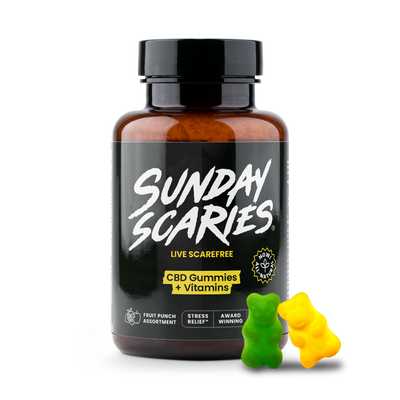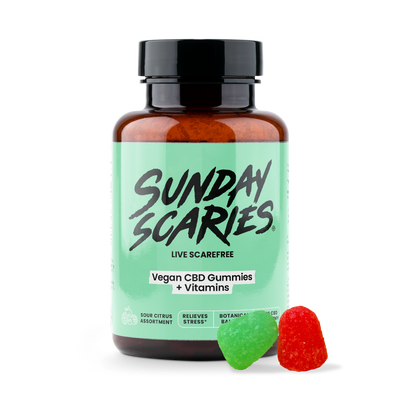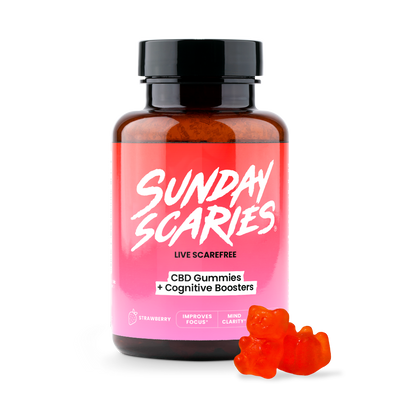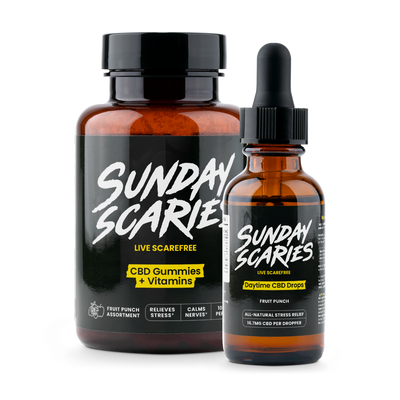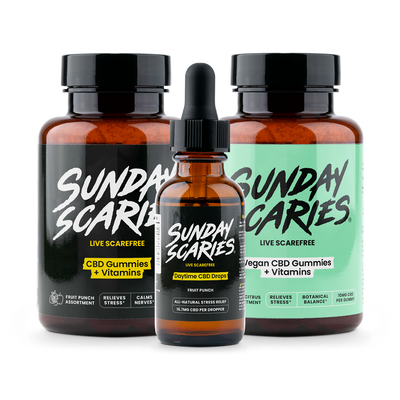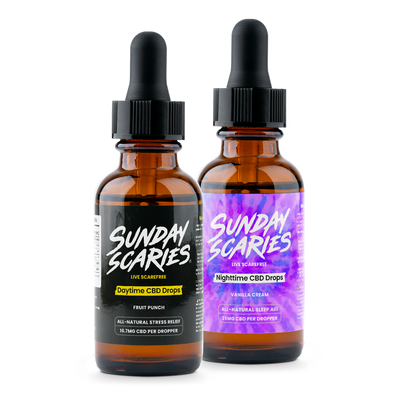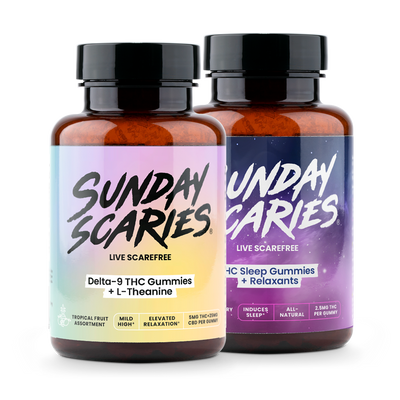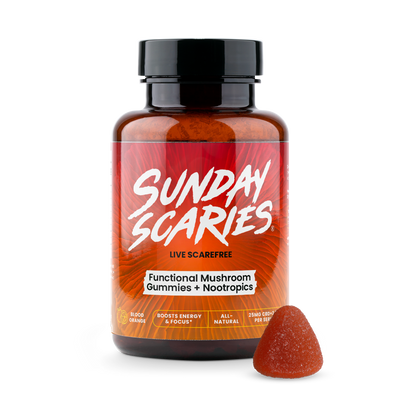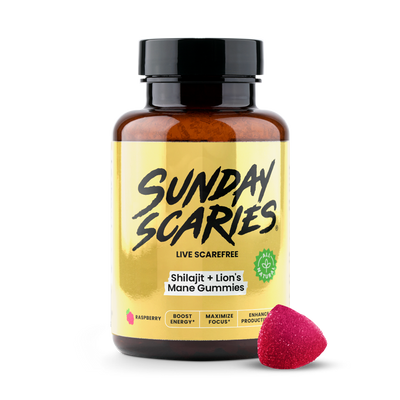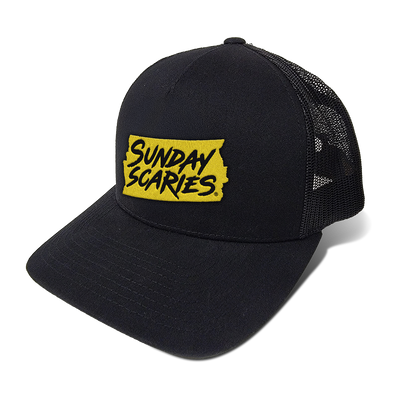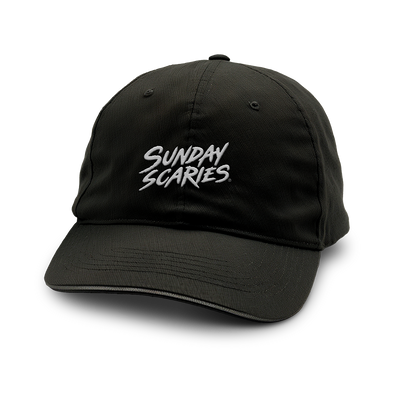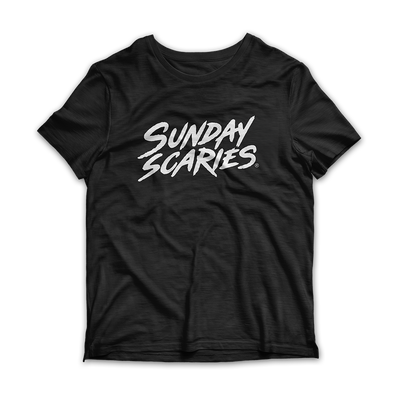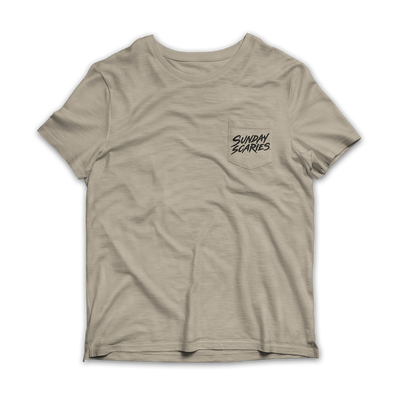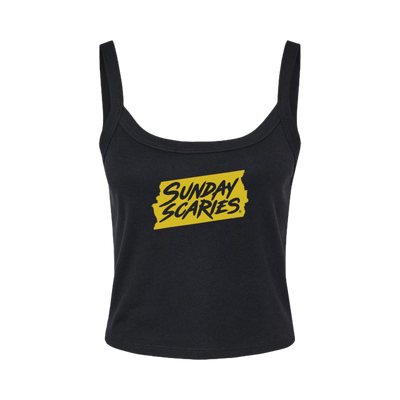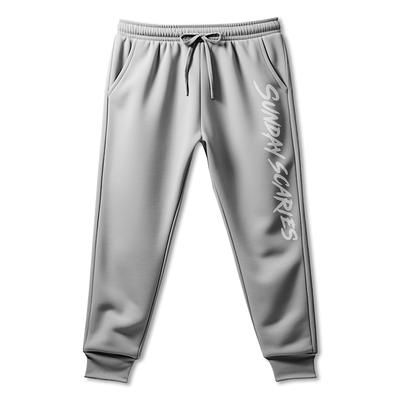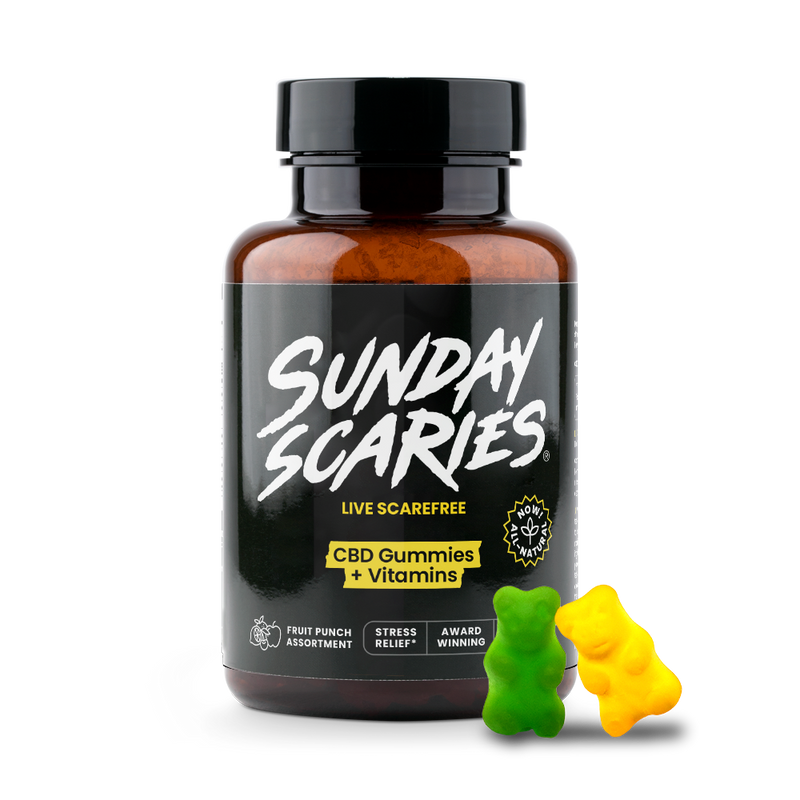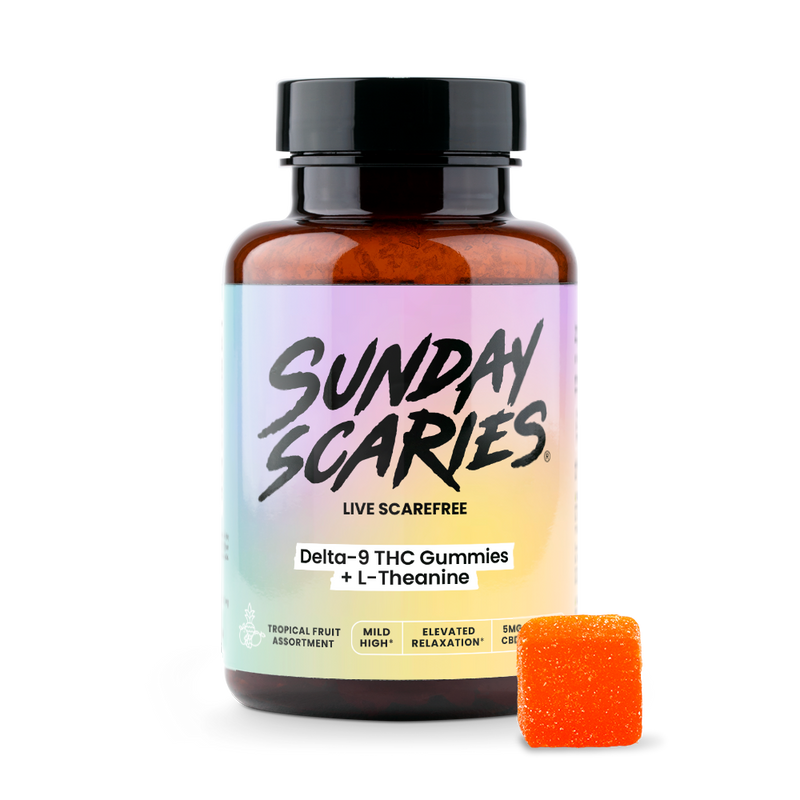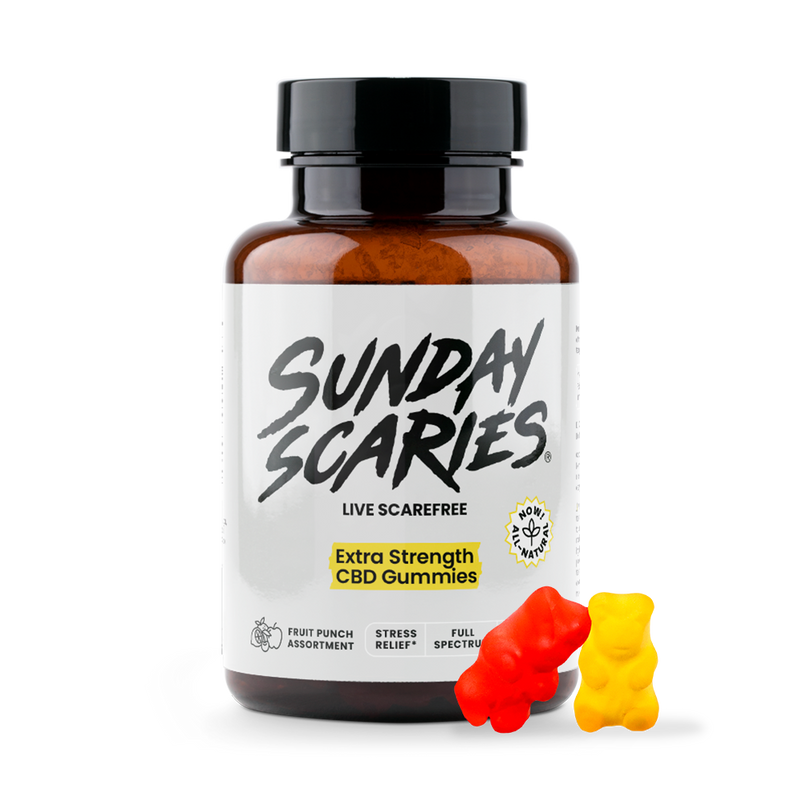
Does CBD Show Up on Drug Tests?
Pure CBD typically does not show up on standard drug tests. However, full-spectrum CBD products contain trace amounts of THC (under 0.3%), which may trigger a positive result, especially on tests that screen for all cannabinoids.
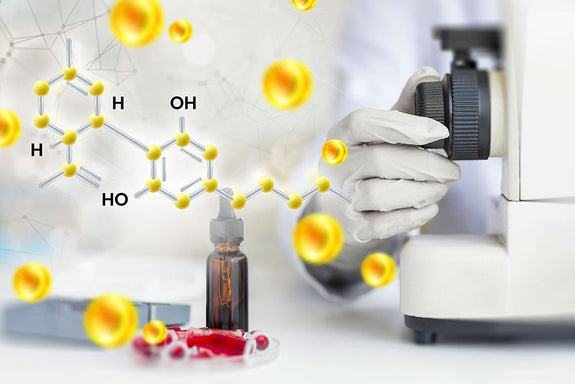
If you’re wondering, “does CBD show up on a drug test?” the straightforward answer is that CBD, in its pure form, is not usually detected.
This is because there aren’t many commercial drug tests on the market that employers would use to check for this specific compound. Most workplace tests are set to detect THC, although labs like LabCorp are starting to test for CBD to distinguish between THC and CBD users.
The main catch? Not all CBD products are purely CBD - some may harbor enough THC to trigger a positive result. Also, some drug test pop positive for all cannabinoids, not just THC, giving you a false positive.
This article provides clarity on how different CBD products could influence drug test results and offers practical advice to minimize any risks.
Key Takeaways
- While CBD itself does not show up on drug tests, many CBD products contain trace amounts of THC which can result in a positive test. Hemp-derived CBD products are legally allowed to contain up to 0.3% THC, while CBD extracted from marijuana may have higher levels and are federally illegal.
- There are three types of CBD products: Full Spectrum (contains all compounds of the cannabis plant, including THC), Broad Spectrum (all compounds except for THC), and CBD isolate (only CBD). Frequent use of products with THC, no matter how small the percentage, can lead to accumulation in the body and you can potentially fail a drug test.
- The quality of CBD products varies, with factors such as cross-contamination and mislabeling potentially leading to the presence of unadvertised THC in the product. To minimize the risk of testing positive for THC, consumers should buy from reputable brands, verify lab reports, and consider THC-free products.
CBD and Drug Tests: The Basics
Understanding the relationship between CBD and drug tests begins with a basic knowledge of what CBD is.
CBD is a cannabinoid found in the cannabis plant, which includes hemp-derived and marijuana-derived CBD. But unlike its infamous cousin THC, CBD doesn’t get you high.
It’s THC that gives marijuana its psychoactive effects and also what drug tests are designed to detect. With the growing popularity of CBD products, many people are concerned about a CBD drug test and whether it could detect their usage.
Although CBD doesn’t show up on most commercial drug tests, it’s worth noting that some CBD products do contain THC.
You see, CBD products can be derived from either marijuana or hemp plants, both of which belong to the same plant family. While hemp-derived CBD products are legally allowed to contain up to 0.3% THC, some CBD products, especially those derived from marijuana, may contain higher levels of THC.
Although a product containing only 0.3% THC might appear insignificant, bear in mind that frequent use could accumulate THC in your body over time, potentially resulting in a failed drug test. And worse, not all CBD products are created equal. Some may contain more THC than stated on the label, either due to poor quality control or intentional misrepresentation.
So, while CBD itself doesn’t usually show up on a drug test, using CBD products could potentially cause a positive test result for THC. But don’t panic just yet. Not all CBD products are the same, and there are steps you can take to minimize your risk, which we’ll discuss later.
Before proceeding, we need to understand the key differences between CBD and THC.
CBD vs. THC
THC is the compound responsible for the “high” associated with marijuana use. It interacts with the body’s endocannabinoid system to produce psychoactive effects.
CBD, on the other hand, doesn’t have the same mind-altering effects. It interacts with the endocannabinoid system differently, resulting in potential health benefits without the high.
This is the main reason why CBD is gaining popularity as a therapeutic agent for various health conditions.
As for drug tests, they are primarily designed to detect THC, not CBD. Urine drug tests typically look for THC metabolites, as opposed to CBD or its metabolites.
CBD is not commonly included in standard drug screenings. In other words, if you’re using a CBD product that doesn’t contain any amount of THC, you should not test positive on a drug test.
However, as we mentioned earlier, not all CBD products are THC-free. Some might contain enough THC to trigger a positive drug test, especially with frequent use. Before exploring that further, it’s worthwhile to briefly discuss the common types of drug tests.
Common Types of Drug Tests
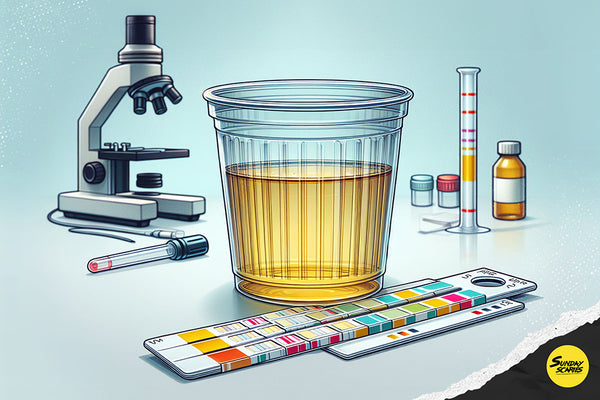
Drug tests come in various types, each designed to detect the presence of specific substances in the body. The most common types of drug tests used to screen for cannabis use include:
- Urine tests
- Blood tests
- Saliva tests
- Hair tests
Urine tests, also known as urine drug screening, are the most common form of drug testing, particularly in workplace settings. They detect the presence of THC metabolites, which can remain in the body for several days or even weeks after use, depending on the frequency and amount of use. Workplace drug testing often relies on these urine tests to ensure a drug-free environment.
Blood tests, on the other hand, are used to detect current impairment, as THC can be detected in the blood for several hours after use. However, they are less likely to be used for workplace testing due to their higher cost and the need for medical supervision.
Saliva tests are relatively new in the field of drug testing and are primarily used to check for recent substance use. THC can be detected in saliva for about 24 to 48 hours after use. However, in heavy users, it might be detectable for up to 72 hours. These tests are beneficial for on-the-spot testing, such as roadside driving impairment checks, due to their non-invasive nature and immediate results.
Hair tests can detect THC metabolites for a longer period, up to 90 days after use. However, they are less common due to their higher cost and the potential for false positives from exposure to secondhand smoke.
CBD Products and Their Potential THC Content
At this point, you might be questioning how a CBD product can contain THC. Well, it all comes down to the type of CBD product and how it’s made.
CBD products can be classified into three main types: Full Spectrum CBD, Broad Spectrum CBD, and CBD Isolate. Each of these types contain varying levels of THC.
Full Spectrum CBD contains all the naturally occurring compounds in the cannabis plant, including THC. This means that if you’re using a Full Spectrum CBD product, you could potentially test positive for THC on a drug test.
Broad Spectrum CBD is comparable to Full Spectrum CBD, with the distinction that it has been stripped of all THC. This makes it a suitable option for those wanting to avoid THC while still benefiting from various cannabinoids. So, if you’re using a Broad Spectrum CBD product, the risk of testing positive for THC is significantly lower. But, you're not totally covered since the extraction process may leave non-material traces of THC.
CBD isolate, as the name suggests, contains only CBD. It has been isolated from all other plant compounds, so it should not contain any THC. But again, the quality and accuracy of the product matter.
We need to explore each of these types of CBD products for a more detailed understanding.
Full Spectrum CBD

Full Spectrum CBD contains all the naturally occurring compounds in the cannabis plant, including:
- Cannabinoids
- Flavonoids
- Essential oils
- Terpenes
- THC
The idea behind Full Spectrum CBD is to take advantage of the “entourage effect,” where the various compounds in the cannabis plant work together to enhance their therapeutic effects.
However, the presence of THC in Full Spectrum CBD products potentially poses a risk for those subjected to drug testing. Even though the THC content in Full Spectrum CBD products is usually very low (less than 0.3%), frequent use can lead to the accumulation of THC in the body, which could potentially cause a positive drug test.
In other words, not all Full Spectrum CBD products are created equal. Some may contain more THC than stated on the label, either due to poor quality control or intentional misrepresentation. This brings us to the next type of CBD product, Broad Spectrum CBD.
Broad Spectrum CBD
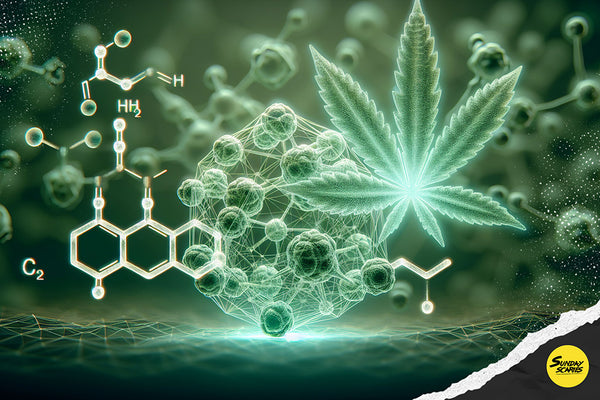
Broad Spectrum CBD is similar to Full Spectrum CBD in that it contains a range of compounds present in the cannabis plant. However, it has had all THC removed to non-detectable levels. This means that if you’re using a Broad Spectrum CBD product, the risk of testing positive for THC is very unlikely.
Broad Spectrum CBD is produced by extracting Full Spectrum CBD along with all its compounds, followed by the targeted removal of THC molecules. This ensures that you get the beneficial effects of the other compounds in the cannabis plant, minus the THC.
However, be aware that while Broad Spectrum CBD is designed to have no THC, it may still contain minimal amounts due to discrepancies in manufacturing and testing thresholds. Therefore, it’s always a good idea to check the lab report of a product to ensure it’s truly THC-free.
Broad Spectrum CBD products may have diminished benefits compared to Full Spectrum CBD due to the absence of THC. However, they still have the potential to help in situations where social anxiety is high, or where sleep problems are consistent.
Now, let’s move on to the third type of CBD product, CBD isolate.
CBD Isolate
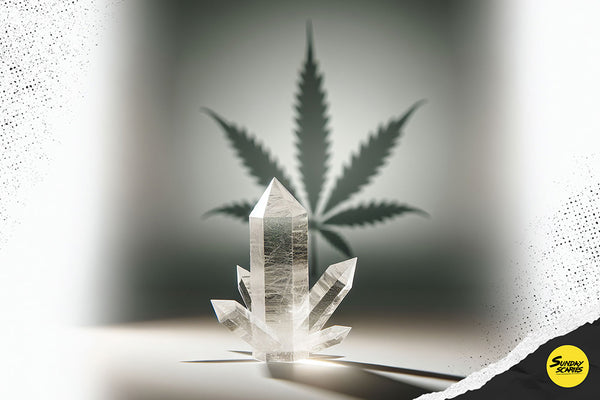
CBD isolate is exactly what it sounds like: pure, isolated CBD. It’s produced by extracting and isolating CBD from the cannabis plant, ensuring its purity and the removal of any other plant compounds, including THC.
This means that if you’re using a CBD isolate product, the risk of testing positive for THC is basically zero. CBD isolate is a good option if you want to enjoy some of the potential therapeutic benefits of CBD without the risk of consuming THC.
However, keep in mind that while CBD isolate does not contain THC, it also does not contain any of the other beneficial compounds found in the cannabis plant. This means you won’t get the “entourage effect” that you would with Full Spectrum CBD.
In summary, while CBD isolate might seem like the safest option in terms of avoiding a positive drug test, it may not provide the same level of benefits as Full Spectrum or Broad Spectrum CBD. So, always consider your needs and circumstances when choosing a CBD product.
Factors Affecting CBD and Drug Test Results
Having discussed the different types of CBD products and their potential THC content, the focus now shifts to other factors that can influence CBD-related drug test results.
These factors include product quality, cross-contamination, mislabeling, usage and testing methods.
- Product quality is a major factor. Low-quality CBD products may contain more THC than advertised on the label, increasing the risk of a positive test result. This is why it’s crucial to choose reputable brands and verify their lab reports, which we’ll discuss in more detail later.
- Cross-contamination is another factor to consider. During the manufacturing process, THC can inadvertently contaminate CBD products, leading to trace amounts of THC that can potentially cause a positive drug test.
- Mislabeled products are also a concern. Some products may claim to be THC-free, but in reality, they may contain THC. This is why it’s important to verify the lab reports of the products you’re using.
- You’re using over 1,000 mg of Broad Spectrum CBD per day, which could contain enough residual THC to cause a positive test (usually 1 mg of THC is the threshold for detection).
- The lab used older testing methods which more likely to cause a false positive for CBD. There’s an old analytical testing method used in certain outdated drug tests that’s notorious for reading CBD as THC: gas chromatography/mass spectrometry (GC/MS) employing a chemical called trifluoroacetic anhydride (TFAA).
Product Quality
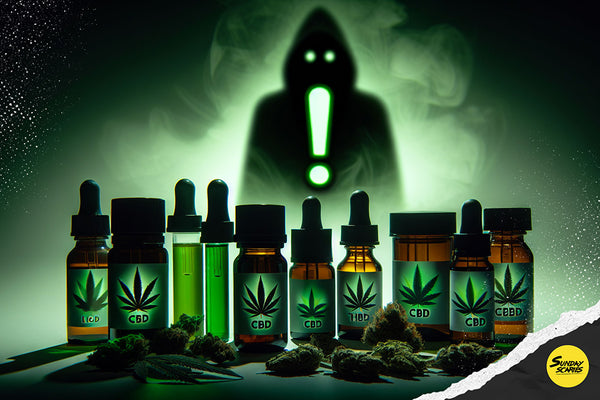
Product quality is a crucial factor that can influence the outcomes of drug tests. Inferior quality CBD products may contain elevated levels of THC, potentially leading to a positive drug test result. This is why it’s important to choose high-quality CBD products from reputable brands.
Reputable brands are more likely to:
- Adhere to strict quality control standards
- Accurately label their products
- Provide lab reports, also known as Certificates of Analysis (COAs), which can help you verify the THC content in the product.
The production process can also influence the THC content in CBD products. Some methods of extraction may lead to higher levels of THC, especially if the source plant has high THC content.
So, always choose high-quality CBD products from reputable brands. This not only ensures you get the best therapeutic benefits but also reduces the risk of a positive drug test.
Cross-contamination

Cross-contamination during the manufacturing or storage of CBD products can lead to the presence of trace amounts of THC.
This can occur if the CBD products come into contact with other products containing THC during the manufacturing process or if the CBD products are stored in the same area as THC-containing products.
Manufacturers can prevent cross-contamination by implementing good manufacturing practices, such as separate storage areas for CBD and THC products and regular cleaning of production equipment.
However, not all manufacturers follow these practices. This is why it’s important to choose CBD products from reputable brands that adhere to strict quality control standards.
Mislabeled Products
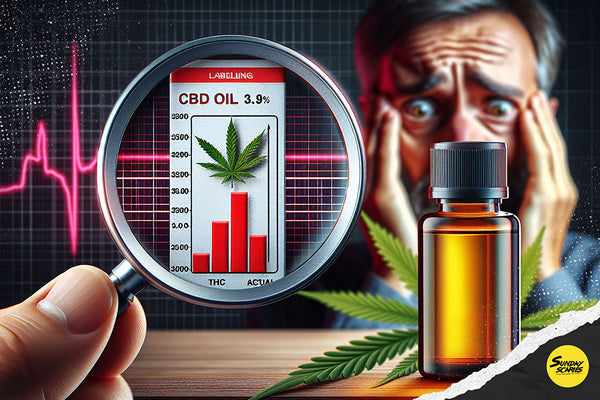
Mislabeled CBD products pose a significant risk to consumers. Some products may claim to be THC-free, but in reality, they may contain THC. This is a serious issue as it not only misleads consumers but also increases the risk of a positive drug test.
Mislabeling can occur due to various reasons, such as poor quality control, intentional misrepresentation, or simply a lack of understanding of the regulations governing CBD products.
To protect yourself from mislabeled products, always check the lab report of the product. Lab reports, also known as Certificates of Analysis (COAs), can provide accurate information about the THC content in the product.
Remember, not all CBD products are created equal. Always choose high-quality CBD products from reputable brands, and verify their lab reports to ensure they’re free from THC.
Extremely High Dosing
It's also critical to consider the role of dosage when it comes to CBD use and drug testing. Consuming extremely high doses of CBD (over 1,000mg per day, for example) could potentially increase the risk of a positive drug test.
This is particularly true if you're using Broad Spectrum CBD or inferior quality products, which could contain enough residual THC to surpass the threshold of detection in drug tests.
As such, understanding and monitoring your CBD dosage can serve as an effective strategy to avoid unexpected test results. Always remember to start low and go slow when it comes to CBD consumption.
Older Testing Methods
In some cases, the testing methods employed can also influence the outcomes of drug tests. Older analytical techniques such as gas chromatography/mass spectrometry (GC/MS) coupled with a chemical called trifluoroacetic anhydride (TFAA) have been known to misidentify CBD as THC, leading to false positives.
Although most laboratories now employ more advanced and accurate testing procedures, some might still use these outdated techniques. If you encounter a positive drug test and you suspect a false result, it's advisable to inquire about the analytical methods the lab used.
If they utilized GC/MS and TFAA, you might be able to challenge the validity of the result.
How to Minimize the Risk of a Positive Drug Test
Having explored the potential risks of CBD products and factors influencing drug test results, we can now discuss strategies to minimize the risk of a positive drug test.
First and foremost, always choose reputable brands. Reputable brands are more likely to provide accurate information about their products and adhere to quality standards. They’re also more likely to provide lab reports, which can help you verify the THC content in the product.
Second, always verify the lab reports of the products you’re using. Lab reports can provide accurate information about the THC content in the product, ensuring it meets legal limits and reducing the risk of a positive test result.
Lastly, if you need to take a drug test for work or the military, consider using THC-free products with isolate as the CBD oil choice.
These products are specifically formulated to remove THC, reducing the likelihood of a positive drug test.
That being said, it's always wise to simply ask your employer or superior if they test for CBD and be open and up front from the get-go.
Choose Reputable Brands
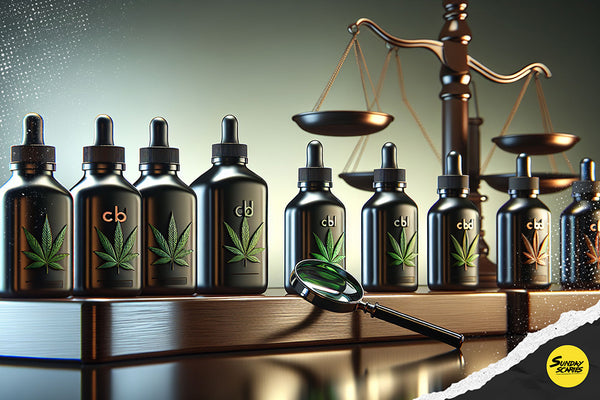
Choosing reputable brands is crucial when using CBD products. Reputable brands are more likely to:
- Adhere to strict quality control standards
- Accurately label their products
- Provide lab reports, which can help you verify the THC content in the product.
- Be transparent about their manufacturing procedures
- Be transparent about the ingredients used in their products
- Showcase authentic testimonials on their website
- Showcase reviews from Verified Buyers for each product
- Have credible mentions and earned media placements from high-tiered publications
If a brand is reluctant to provide information about their products or does not provide lab reports, consider it a red flag. Always choose brands that are open and transparent about their products.
Some well-known reputable CBD brands include Sunday Scaries, Charlotte's Web, cbdMD and CBDistillery.
Verify Lab Reports
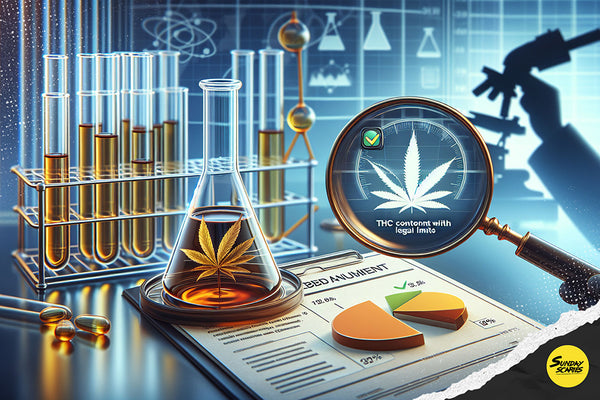
Lab reports, also known as Certificates of Analysis (COAs), can provide accurate information about the THC content in a CBD product. They can help ensure the product meets legal limits and reduce the risk of a positive test result.
A COA provides information about the following aspects of a product:
- Cannabinoid and terpene profile
- Potency
- Pesticides
- Herbicides
- Heavy metals
- Microbiological content
It can help you verify whether the product contains THC and if so, how much.
If a product’s lab report shows that it contains THC, consider choosing a different product. Even trace amounts of THC can potentially cause a positive drug test, especially with frequent use.
Remember, the risk of a positive drug test is not worth the potential benefits of a CBD product. Always verify the lab reports of the products you’re using to ensure they do not contain THC.
Opt for THC-free Products

Choosing THC-free products can significantly reduce the risk of a positive drug test. Products with CBD isolate are specifically formulated to remove THC and with Broad Spectrum products your chances are much lower although a workplace drug test may still pick up some residual amount of THC, albeit it's unlikely.
Even though these products should ideally be free from THC, always verify the lab reports to ensure they’re truly THC-free. Remember, even trace amounts of THC can potentially cause a positive drug test, especially with frequent use.
In conclusion, while using CBD products carries a risk of a positive drug test due to the potential presence of THC, there are steps you can take to minimize this risk.
Choose reputable brands, verify lab reports, and if you are subject to a test ensure to purchase CBD products sold online that are THC-free.
Isolate products may be less effective than Full Spectrum CBD oil but the THC present in Full Spectrum CBD oil will put you in jeopardy of failing.
Summary
In this blog post, we’ve explored the complex relationship between CBD and drug tests. We’ve learned that while CBD itself does not usually show up on drug tests, some CBD products may contain trace amounts of THC, which can potentially lead to a positive drug test.
We’ve also discussed the different types of CBD products and their potential THC content, factors that can influence drug test results, and steps you can take to minimize the risk of a positive drug test.
The key takeaway here is to always choose high-quality CBD products from reputable brands, verify their lab reports, and consider using THC-free products to reduce the risk of a positive drug test.
Although THC-free products are less effective than products containing all cannabinoids.
Remember, your health and well-being should always come first.
Frequently Asked Questions
How long does CBD (with THC) stay in your urine?
CBD itself typically leaves the body within a few days, but if your CBD product contains THC—as in full-spectrum CBD—it can stay detectable in your urine for up to 30 days, depending on factors like dosage, frequency of use, metabolism, and hydration levels. Regular or high-dose use increases the likelihood that THC metabolites will be detectable for a longer period.
Does LabCorp test for CBD?
Yes, LabCorp has developed a new assay to measure and calculate a ratio of CBD and THC metabolites in urine, helping distinguish CBD use from marijuana use. If the concentration of CD metabolites considerably exceeds the THC metabolites, it can be concluded that the drug screening detected a CBD user and not a THC user.
Does CBD show up on a drug test?
No, CBD itself does not show up on a drug test, unless the test specifically targets cannabidiol. That being said, some CBD products may contain trace amounts of THC, which could result in a positive result. We advise you ask your employer or superior about what kind of tests are used and if CBD is an acceptable supplement to use.
What's the difference between CBD and THC?
The main difference between CBD and THC is that THC is psychoactive and produces a "high," while CBD does not have the same mind-altering effects.
Ready to fight the Sunday Scaries? Shop our CBD Gummies for Focus, CBD Candy, CBD Treats for Dogs, CBD Gummies, CBD Oil Tinctures, CBD Sleep Oil, Extra Strength CBD Gummies, Delta-9 THC Gummies, CBD Edibles, and Vegan CBD Gummies online today!

